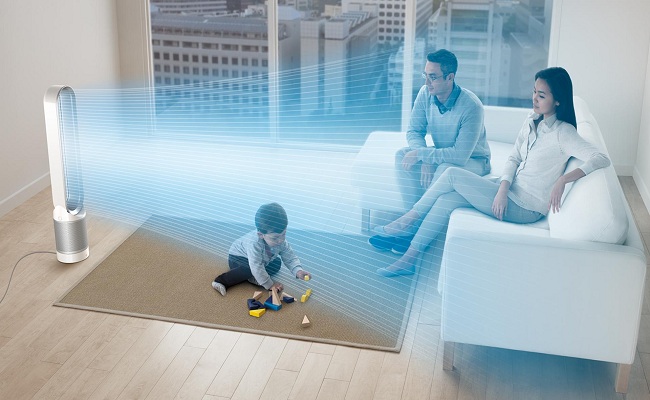Air purifiers have grown in popularity recently as a crucial tool for improving indoor air quality.
Because of the increased demand, many individuals seek an air purifier sale to obtain the most excellent deal. However, as their popularity has grown, so have falsehoods and misconceptions. This blog aims to debunk common fallacies about air purifiers and provide an informed viewpoint on their performance and utility as a household appliance. We can make more educated decisions about the utility of air purifiers in preserving clean and healthy interior environments by investigating the science underlying them.
Myth 1: Air Purifiers are Ineffective Against Pollutants
One widely held belief is that air purifiers are inadequate at eliminating contaminants from the air. However, numerous studies and expert opinions suggest otherwise. Air purifiers capture and remove dust, pet hair, pollen, mold spores, bacteria, and even certain volatile organic compounds (VOCs). HEPA filters, often used in air purifiers, are particularly effective at collecting tiny particles as small as 0.3 microns, assuring cleaner air in your house.
Myth 2: Air Purifiers Eliminate the Need for Ventilation
Installing an air purifier eliminates the requirement for good interior ventilation. While air purifiers can efficiently filter and purify the air in a small space, they do not address the problem of stagnant air or refill oxygen levels. Ventilation is still essential because it helps to remove stale air, reduce indoor humidity, and bring in fresh outdoor air. Using air purifiers with proper ventilation enables a holistic approach to improving indoor air quality.
Myth 3: Air Purifiers Only Benefit Allergy Sufferers
Another prevalent myth is that air purifiers are exclusively beneficial to allergy sufferers. While air purifiers can help allergy patients by eliminating allergens from the air, their benefits go beyond that. They can also help limit exposure to respiratory irritants like smoke, chemical odors, and volatile organic compounds (VOCs), which can harm the health and well-being of everyone in the household. Clean air benefits everyone, not just those who have unique sensitivities.
Myth 4: Air Purifiers Generate Harmful Ozone
There is a widespread belief that air purifiers, particularly those with ionizers or ozone generators, might emit hazardous ozone levels. While some air purifiers generate trace amounts of ozone, reputable companies adhere to strict safety requirements to keep ozone levels below hazardous ones. HEPA-based air purifiers do not produce ozone since they use physical filtration rather than ozone-generating devices. When choosing an air purifier, ensure it has been verified as ozone-free by a reputable testing body.
Myth 5: Air Purifiers Solve All Indoor Air Quality Issues
Air purifiers are essential for improving indoor air quality but are not a cure-all for all issues. They primarily target airborne particles and microbes, but humidity management, adequate ventilation, and source control also contribute to overall air quality. To achieve the best outcomes, addressing all aspects of indoor air quality and using a comprehensive approach incorporating multiple tactics is critical.
Frequently Asked Questions
Are air purifiers worth it?
Yes, in some cases, air purifiers are worthwhile. They can enhance indoor air quality by eliminating dust, pollen, pet dander, mold spores, and volatile organic compounds (VOCs). However, it is critical to understand their limitations and personal needs before purchasing.
Do air purifiers eliminate all indoor air pollutants?
No, air purifiers cannot remove all contaminants from indoor air. While they are excellent at eliminating many common pollutants, such as those stated above, they may need to be more successful at removing gasses, chemicals, and specific particles, such as tobacco smoke, radon, or asbestos. Selecting an air purifier with suitable filters for your unique needs is critical.
Can air purifiers cure allergies or asthma?
Air purifiers will not cure allergies or asthma, but they will assist in alleviating symptoms by eliminating allergens and irritants from the air. Individual responses vary, and other factors, such as regular purifier cleaning and maintenance and treating the source of the allergens, all play a part in effectively managing these disorders.
Are ozone-generating air purifiers safe?
People should avoid air purification devices that generate ozone. While ozone helps eliminate odors and specific contaminants, excessive ozone levels are hazardous and can induce respiratory problems. Air purifiers that utilize alternative technologies, such as high-efficiency particulate air (HEPA) or activated carbon filters, are advised.
Do air purifiers have any benefits for healthy individuals?
Air purifiers can help healthy people by lowering pollution exposure and improving air quality. Cleaner air may result in a more comfortable and pleasant atmosphere, thus reducing the risk of respiratory problems and boosting overall well-being.
Do air purifiers have any drawbacks?
Some disadvantages of air purifiers include the cost of acquiring and maintaining the machine, the noise made by some types, and the necessity of replacing or cleaning filters regularly. Furthermore, certain air purifiers may use more energy, affecting power expenses. However, the advantages they give frequently outweigh the disadvantages.
Are there alternative methods to improve indoor air quality?
Yes, there are other ways to improve indoor air quality. These include keeping a clean living environment, dusting and vacuuming regularly, managing humidity levels, employing natural ventilation whenever possible, not smoking indoors, and using indoor plants to help filter the air.
Conclusion
Now that we've refuted the air purifier myths, it's time to take charge of your indoor air quality. Invest in a renowned air purifier with a HEPA filter to properly eliminate pollutants from your home. Use it with optimum ventilation, humidity control, and source reduction for best results.
Prioritizing clean air benefits everyone in your household, not just allergy sufferers. Don't let misconceptions prevent you from making your home a healthier place to live. Act immediately to enhance indoor air quality and reap the benefits of cleaner, fresher air at home.
Decide today to purchase an air purifier and take the required steps to improve air quality. Breathe easily, live well, and notice the difference that clean air makes in your house.
